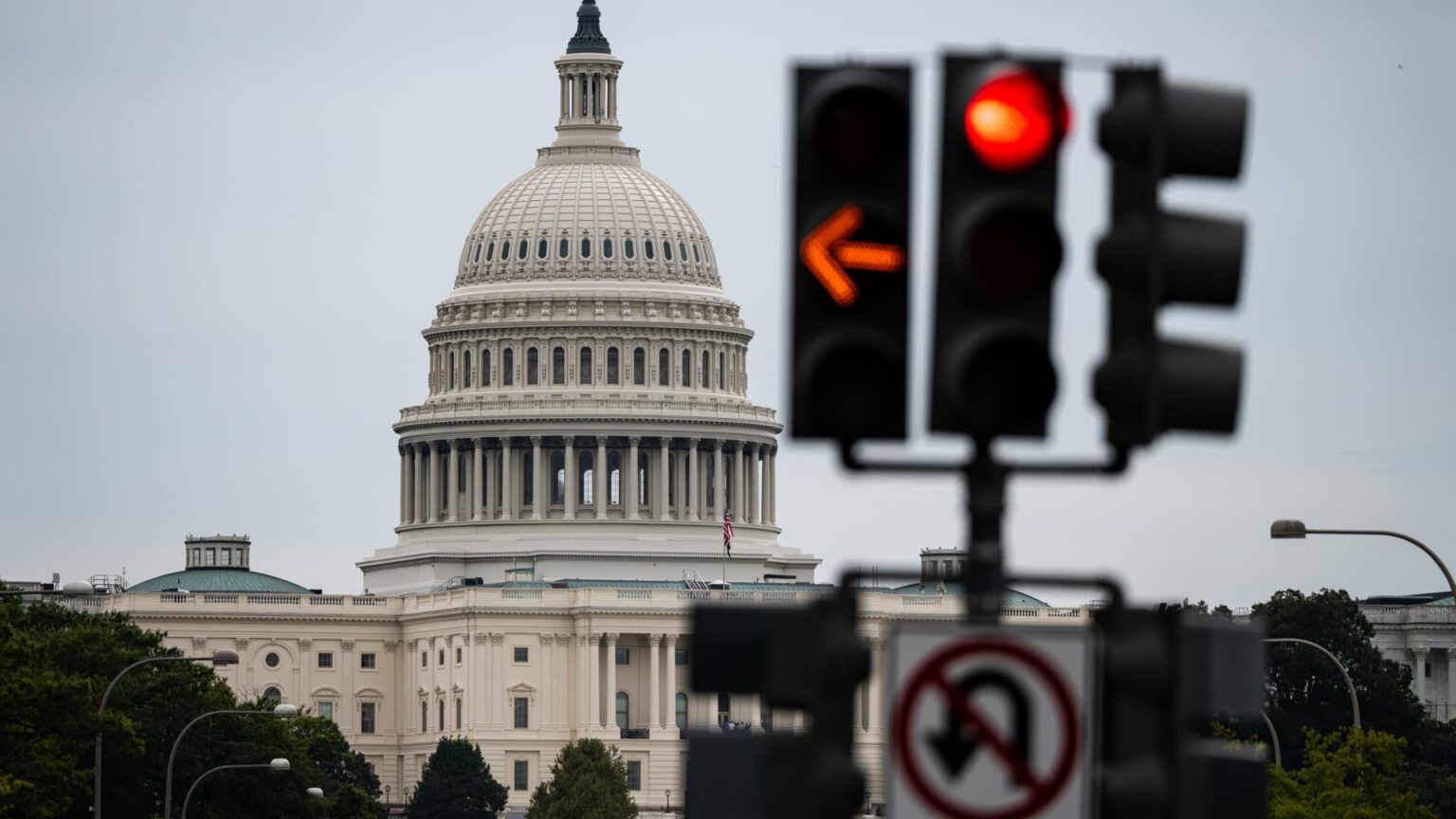The U.S. government is on the brink of a shutdown after Congress was unable to reach an agreement on funding bills ahead of the impending deadline Friday. Disputes have escalated between Republicans and Democrats, particularly regarding the inclusion of enhanced Affordable Care Act (ACA) tax credits, a major concern for many lawmakers. As tensions rise, officials like Senator John Fetterman expressed disappointment at the prospect of a shutdown, which the Congressional Budget Office estimates could lead to the furlough of approximately 750,000 federal employees.
| Article Subheadings |
|---|
| 1) Congressional Standoff: What Led to the Impasse |
| 2) Political Repercussions for Federal Workers |
| 3) The ACA Tax Credits Debate |
| 4) Statements from Key Lawmakers |
| 5) The Path Ahead: Possibilities for Resolution |
Congressional Standoff: What Led to the Impasse
As midnight approached on Wednesday, Congress faced a deadlock over a stopgap funding measure necessary to avert a government shutdown. Both parties remained entrenched in their positions, with Republican lawmakers advocating for a “clean” continuing resolution—one that would keep the government funded without additional provisions for healthcare programs. Meanwhile, Democrats remained adamant that any funding bill should include extensions for enhanced ACA tax credits aimed at reducing health insurance premiums for millions of Americans. This disagreement on health care provisions highlighted the broader ideological divide within Congress, as leaders from both sides sought leverage on issues that extend beyond immediate funding needs.
Political Repercussions for Federal Workers
If Congress fails to pass necessary funding, the ramifications could be significant for federal employees. The nonpartisan Congressional Budget Office reported that around 750,000 federal workers could find themselves furloughed. This sudden loss of income poses immediate challenges not just for workers but for the economy as a whole. The financial impact of these furloughs is estimated to cost $400 million per day, a figure that raises alarms among economic analysts who are concerned about the potential ripple effects on local economies reliant on federal jobs. Lawmakers have acknowledged that the number of furloughed employees may vary daily, complicating the landscape for families dependent on federal income.
The ACA Tax Credits Debate
Central to the ongoing negotiations is the push by Democrats to extend ACA tax credits. These credits effectively lower health insurance costs for millions of Americans who purchase their health coverage through public exchanges. Currently set to expire at the end of 2025, the urgency to renew these credits has increasingly become a sticking point in negotiations, illustrating the intersection of budgetary concerns with vital health care policies. The inability to reconcile this issue further complicates discussions, with some lawmakers accusing their counterparts of politicizing the welfare of millions simply to secure a partisan advantage in future elections.
Statements from Key Lawmakers
Lawmakers from both parties have taken to various media platforms to air their grievances and advocate for their positions. House Speaker Mike Johnson critiqued Democratic leaders such as Senate Minority Leader Chuck Schumer and House Minority Leader Hakeem Jeffries, suggesting they have “painted themselves into a corner” by linking ACA policies to the funding mechanisms necessary for government operation. Johnson argued the situation was urgent and called for a bipartisan solution without unrelated demands. Conversely, Jeffries maintained that any resolution must prioritize health-care protections for the American people, stating,
“We will not support a partisan Republican spending bill that continues to gut the health care of the American people.”
The Path Ahead: Possibilities for Resolution
As the clock ticks down to a potential shutdown, discussions of how to move forward are increasingly critical. Both sides acknowledge the need for compromise to avoid the detrimental consequences associated with a shutdown. Given the complexity of the issues involved, including healthcare, federal employment, and political optics, the path to a resolution remains uncertain. Yet, some lawmakers express optimism that bipartisan negotiations could yield a solution that addresses immediate funding needs while also affirmatively focusing on healthcare reforms going forward.
| No. | Key Points |
|---|---|
| 1 | Congress faces a potential shutdown due to funding disagreements. |
| 2 | Around 750,000 federal workers may be furloughed, costing the economy $400 million daily. |
| 3 | Democrats insist on extending Affordable Care Act tax credits in any funding bill. |
| 4 | Key lawmakers are publicly voicing their positions on television and social media. |
| 5 | Bipartisan negotiations might be necessary to avoid a government shutdown. |
Summary
The current standoff in Congress underscores the deep divisions between political parties, particularly regarding healthcare and budgetary policies. As the deadline for funding approaches, the potential impact on federal workers and the economy at large raises critical questions about governance. The urgency of the situation could spur lawmakers into finding common ground, but the path to resolution remains fraught with challenges and partisan tension.
Frequently Asked Questions
Question: What is the significance of the Affordable Care Act tax credits?
The ACA tax credits help millions of Americans afford health insurance, making it pivotal during debates over funding and healthcare policy.
Question: What happens to federal employees during a government shutdown?
Federal employees face furloughs, meaning they are temporarily laid off without pay, which can have severe financial implications for them and their families.
Question: Why are lawmakers struggling to reach a funding agreement?
Lawmakers are divided over policy issues, particularly the inclusion of healthcare provisions like ACA tax credits, complicating negotiations over standard funding measures.


